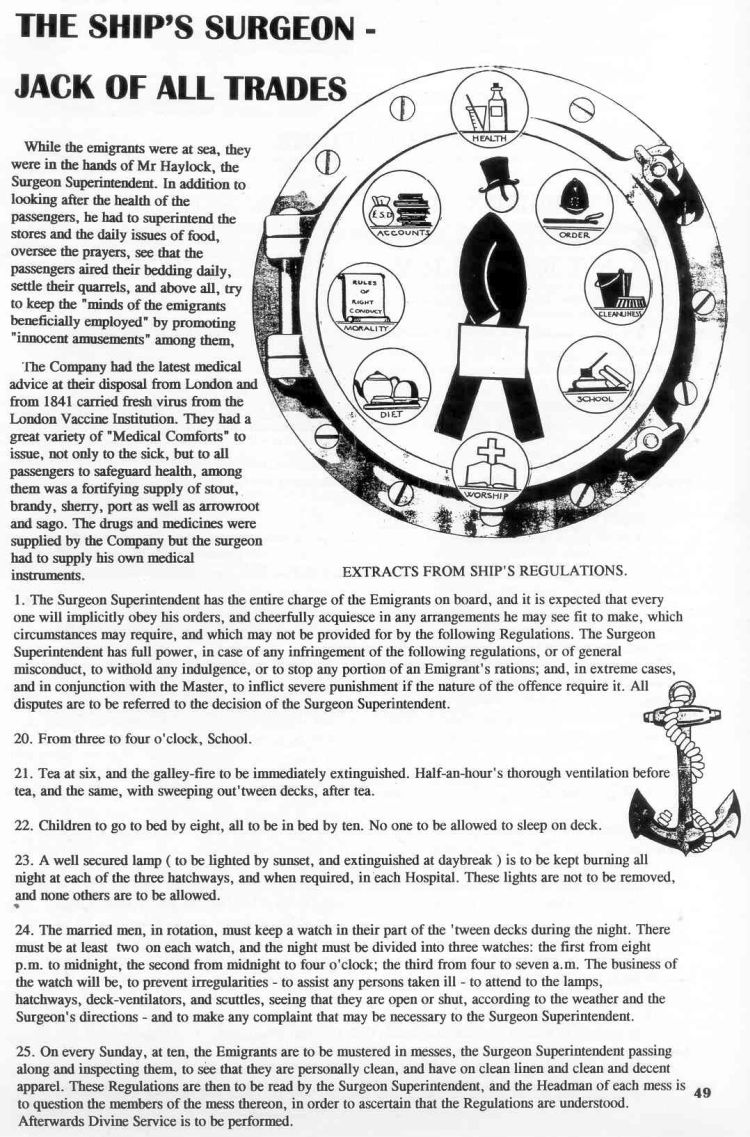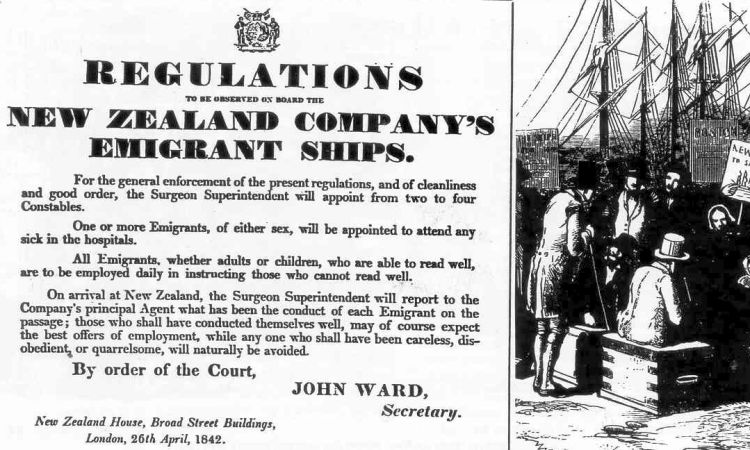|
The surgeon on an immigrant ship had
to deal with all ailments - colds, flu, diarrhoea,
constipation, and lice. Sometimes there would be outbreaks of
measles, diphtheria, smallpox, or whooping cough and he attended
births and deaths. in addition to looking after the passengers'
physical health, he was also employed to oversee the stores and
daily food rations, instigate daily routines to keep the ship clean
and orderly, organise education for the children, mediate when
passengers had disagreements, and much more. He was especially
responsible for the large numbers of government-assisted emigrants
that were always on board.
Medicines and ointments
were dispensed as well as what were known as "medical comforts"
- stout, sherry, port, sago, milk, and preserved potatoes.
"Comforts" were used to treat all sorts of ailments and were also
given as preventative measures.
the ship was provied
with the medicines a doctor required, but he had to supply
his own medical equipment - to bring instruments, including lancets,
tooth-instruments, midwifery forceps, and an amputating saw. The
first few days at sea were usually very trying for the surgeon.
Passengers had not yet found their sea-legs, and many were violently
ill. The surgeon often found himself suffering from sea-sickness
too, but he was still expected to look after everyone else. Src Te Papa
|
Passengers waiting to see ship's surgeon
Illustrated Australian News, 24/3/1873 |











